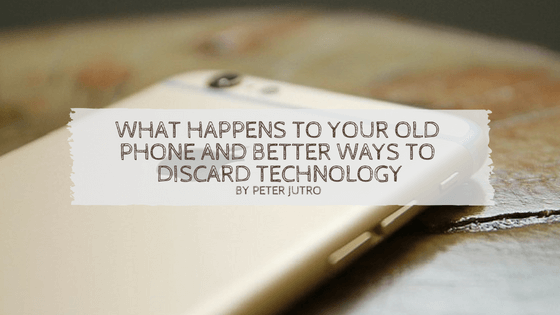True technological development seems to occur in random spurts of genius, yet somehow the rate at which we swap out obsolete gear never seems to slow. For smartphone (and other high tech) users, upgrades have become an unavoidable fact of life. And while some may grumble while stacking their dead screens at the altar of Apple’s business model, all of us still have a choice to make. How we dispose of our tech today could mean the difference between the 44.7 million tons of e-waste tossed in 2016, or a future where electronics are recycled in a sustainable fashion.
It may be tempting to lose an old phone in a drawer, or the nearest trash can. However, many of today’s electronics contain toxic heavy metals, including mercury, lead, and cadmium. Pollution leakage from old hardware is detrimental to the ecosystem, so much so that 25 states now have laws against simply discarding electronics. The problem is not only one of waste. Smart devices also store a large amount of personal information, which should be thoroughly purged before disposal. Therefore, to prevent damage on a personal or environmental level, it’s essential to exercise care when getting rid of devices. Luckily, safe options do exist.
Make a Donation
A phone upgrade often entails sacrificing a perfectly functional device. Fortunately, charities and other philanthropy groups are often in the market for electronics donations. A device is generally acceptable to donate if it’s less than five years old, still works well, and doesn’t need new parts. Local schools, libraries, homeless shelters, and senior care facilities may be looking for donations of computers, TVs, and cell phones. In addition, initiatives like eBay for Charity and American Cell Phone Drive resell or recycle donated phones and other gadgets. Some also let donors direct proceeds to a cause of their choice.
Recycle
Proper recycling ensures that the toxins cloistered within your old reading tablet won’t seep into the ecosystem. It also allows any serviceable glass, plastics, and metals to be collected and sustainably remanufactured. Many local communities have programs in place to encourage device recycling. Drop off locations are common, and many municipalities host collection days. Check here for more information on local recycling options.
Give/Sell It Back
Certain companies have set up programs for recycling old hardware, no matter where it came from. Best Buy, for example, accepts a multitude of electronics from any brand or manufacturer. Sprint gives customers the option to receive as much as $300 in account credit for trading in just about any mobile phone. Amazon will buy back a variety of electronics as well, offering gifts cards of up to $200 in exchange. Other companies have similar programs.
Some aspects of being effective stewards of our surroundings are often easier than most imagine. Simply devoting a small amount of time to properly discard our aging technology could make a world of difference.

